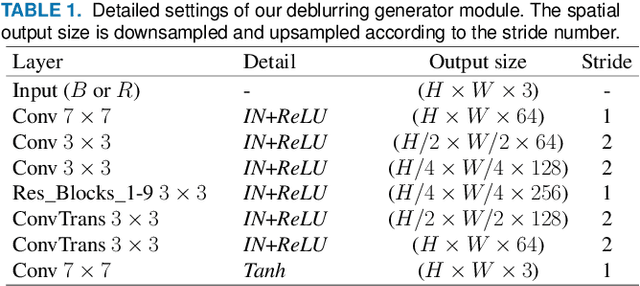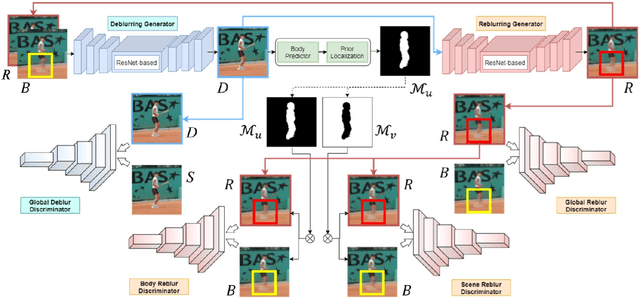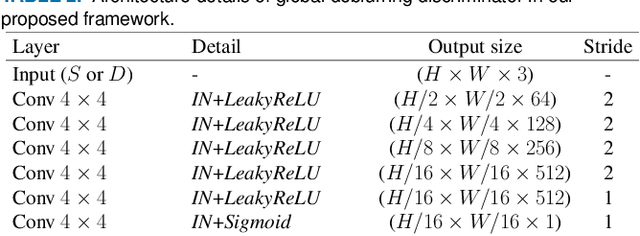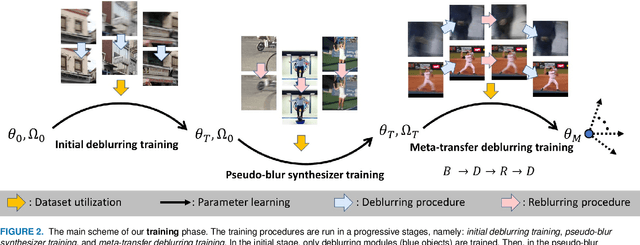Human and Scene Motion Deblurring using Pseudo-blur Synthesizer
Paper and Code
Nov 25, 2021



Present-day deep learning-based motion deblurring methods utilize the pair of synthetic blur and sharp data to regress any particular framework. This task is designed for directly translating a blurry image input into its restored version as output. The aforementioned approach relies heavily on the quality of the synthetic blurry data, which are only available before the training stage. Handling this issue by providing a large amount of data is expensive for common usage. We answer this challenge by providing an on-the-fly blurry data augmenter that can be run during training and test stages. To fully utilize it, we incorporate an unorthodox scheme of deblurring framework that employs the sequence of blur-deblur-reblur-deblur steps. The reblur step is assisted by a reblurring module (synthesizer) that provides the reblurred version (pseudo-blur) of its sharp or deblurred counterpart. The proposed module is also equipped with hand-crafted prior extracted using the state-of-the-art human body statistical model. This prior is employed to map human and non-human regions during adversarial learning to fully perceive the characteristics of human-articulated and scene motion blurs. By engaging this approach, our deblurring module becomes adaptive and achieves superior outcomes compared to recent state-of-the-art deblurring algorithms.
 Add to Chrome
Add to Chrome Add to Firefox
Add to Firefox Add to Edge
Add to Edge